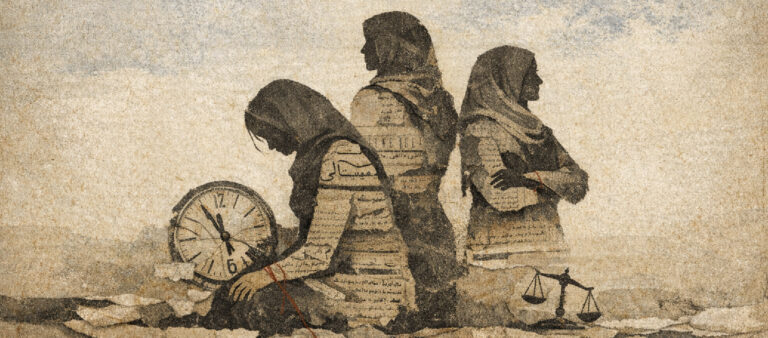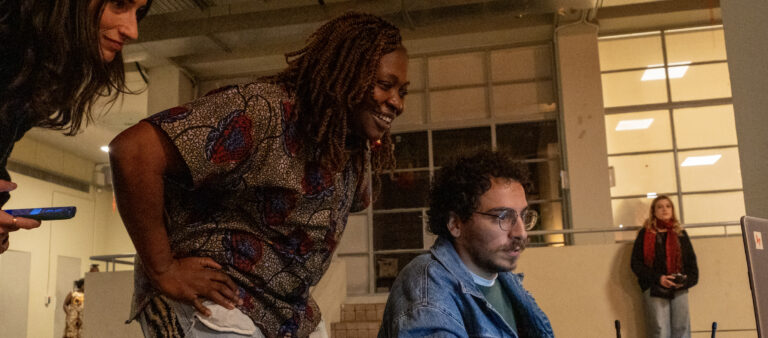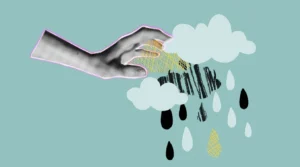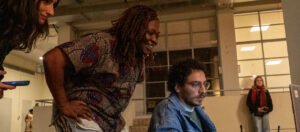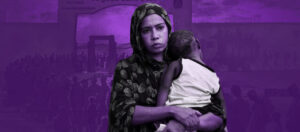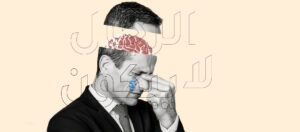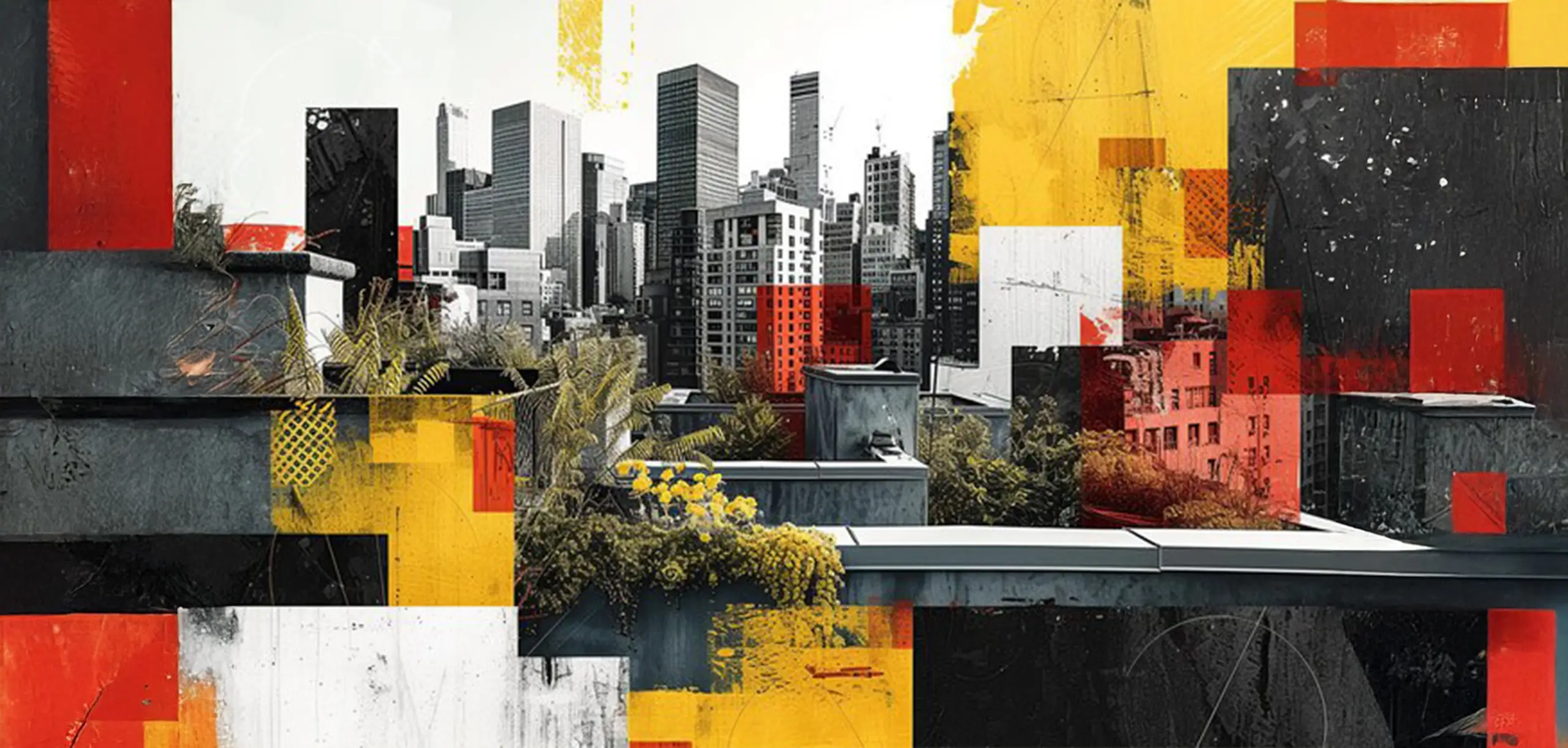Omar Hanan, a 60-year-old man with a disability, was displaced from Afrin, a city in northwestern Syria, in 2018 during the Turkish bombardment. At that time, he lost his family and was left alone as a result of the shelling. In short, Omar describes to Silat Wassel the reality of displacement and the suffering faced by people with disabilities in northern Syria.
Omar now lives in one of Aleppo’s neighborhoods. He says: “I have nothing to help me live with dignity, especially since I am elderly and a person with a disability, which makes it difficult for me to work and earn a living. I receive no aid or support. We were marginalized before, during, and after the shelling.”
Omar’s case is one example of how the war has worsened the suffering of vulnerable individuals and deprived them of support. Tess Ingram, UNICEF spokesperson in Lebanon, confirmed that the number of marginalized people—such as the displaced—facing harsh conditions worldwide has doubled. Many now live in collective displacement shelters such as schools and camps, or in rented homes with high costs amid worsening economic conditions. This was the case for the displaced from the Syrian city of Serekaniye/Ras al-Ain when it was occupied by Turkey in 2019.
UNICEF spokesperson in Lebanon, Tess Ingram, confirmed that the number of marginalized people—such as the displaced—who face harsh conditions worldwide has doubled.
The cities and villages of Lebanon are currently witnessing massive displacement from various areas due to the ongoing Israeli war since September 23. This has a direct impact on children, causing psychological trauma they suffer from today and will continue to endure in the future. During her recent visit to Lebanon on October 24, 2024, UNICEF spokesperson Tess Ingram stated: “UNICEF is doing its best to help children cope with their trauma through psychosocial support and mental health care,” stressing the urgent need for peace and a ceasefire.
Langa Youssef (a pseudonym for a displaced Lebanese woman), who requested to keep her name confidential, told Silat Wassel: “We fled with only the clothes on our backs. Now, all we have left are our battered souls, stripped of dignity. We slept on the ground for three consecutive days before reaching Beirut, where we stayed at an acquaintance’s house for two days. After that, we sought refuge in a shelter center.”
Langa and her family—her mother and two daughters—are unemployed despite her efforts to find work that could help her provide for her family’s needs.
This situation places us all, amid the ongoing wars and horrors, in a constant struggle to reach a safer, more stable stage and a future with less loss—in an attempt to live as we wish. However, a large segment of society continues to face neglect and marginalization in many countries where conflicts and wars are expanding. Talking about the systematic forms of discrimination faced by this group, and how to provide them with support, has become almost a fantasy. Efforts continue, but only at a very limited scale given the available resources.
How Are Marginalized Groups Affected in War?
Riham al-Ahmad, a 45-year-old Lebanese woman who also chose not to reveal her real name, is displaced from Ras al-Ain/Serekaniye. She says: “This is the worst feeling a person could ever experience. We were driven out of the places of our memories without any regard. My family and I were forcibly displaced in a difficult journey. My husband and I have only a small amount of money to cover our needs. The center we are in now lacks most of the essential daily necessities and the basic means of life that I and my three children need—especially since my children require special care in all aspects, and we are facing harsh winter conditions.”
Riham al-Ahmad, a 45-year-old Lebanese woman who also chose not to reveal her real name, is displaced from Ras al-Ain/Serekaniye. She says: “This is the worst feeling a person could ever experience. We were driven out of the places of our memories without any regard. My family and I were forcibly displaced in a difficult journey. My husband and I have only a small amount of money to cover our needs. The center we are in now lacks most of the essential daily necessities and the basic means of life that I and my three children need—especially since my children require special care in all aspects, and we are facing harsh winter conditions.”
Discriminatory practices against marginalized groups—especially women, children, and persons with disabilities—existed before the war, but have worsened significantly during it. They have manifested in the deterioration of basic living conditions and difficulty in accessing them, the absence of adequate healthcare, structural discrimination based on ethnicity and gender, as well as deep economic disparities and an almost complete lack of humanitarian aid. These groups are also excluded from participation in local, regional, and international relief planning, especially the essential emergency plans.
Discriminatory practices against marginalized groups—especially women, children, and persons with disabilities—existed before the war, but worsened significantly during it.
In Lebanon, marginalized men and women in the Bab al-Tabbaneh area of Tripoli, northern Lebanon, number an estimated 24,000 people, of whom 28.9% are Lebanese, while the rest are Syrian and Palestinian refugees. They suffer marginalization across all sectors—health, education, social inclusion, and economic opportunity—according to the Third Social Development Report issued by ESCWA in 2019.
The latest Human Rights Watch report on Syria, published in 2023, revealed that Syrians faced severe violations and hardships by the end of that year, due to the ongoing conflict, worsening economic conditions, and prevailing insecurity. United Nations estimates indicate that, for the first time since the beginning of the conflict, Syrians across the entire country are experiencing varying degrees of “humanitarian suffering.”
In opposition-held areas of northwestern Syria, more than 4.1 million civilians live—half of them displaced at least once since the conflict began. Civilians in these areas are effectively trapped, lacking the resources to relocate elsewhere. They cannot seek asylum in Turkey and fear persecution if they attempt to move to government-controlled areas, according to the same report.
In Lebanon, amid the ongoing war in the country, the Lebanese authorities have not announced an emergency plan that addresses the situation of those displaced by Israeli bombardment—beyond opening some schools and shelter centers. Relief efforts are provided only by civil society organizations. This neglect, particularly of displaced people and persons with disabilities, stems from policies that are likely to continue for years if conditions remain the same. As a result, this segment of the population remains on the margins, deepening societal divisions without any strategy for resolution.
Lebanon prepared its first national human rights plan in 2014, which included goals related to the rights enshrined in the constitution, the Universal Declaration of Human Rights, and international agreements. Of the 21 rights outlined, the plan covered civil and political rights alongside economic, social, and cultural rights. However, according to the UN Human Rights Office, none of these commitments were implemented.
After the first plan expired in July 2020, the Parliamentary Human Rights Committee, chaired by MP Michel Moussa, sought the support of the Office of the High Commissioner for Human Rights and the United Nations Development Programme to develop a new plan—reviewing and updating the first one—especially in light of various legal, political, administrative, and judicial developments, according to a report published on July 2, 2021.
Challenges
Amnesty International has documented numerous human rights violations in Syria, where about 8.8 million people are in need of assistance, as all parties to the conflict and their allied forces continue to carry out unlawful ground and air attacks against civilians and civilian objects in northern Syria. The Syrian government and the Syrian National Army also blocked the delivery of aid and humanitarian agencies—including earthquake-related assistance—in Aleppo Governorate. Other violations included enforced disappearances and Russian airstrikes targeting civilians, according to Amnesty International’s most recent State of the World’s Human Rights report for 2024.
In Lebanon, violence along the border has escalated recently due to the ongoing war between Hezbollah and the Israeli army, following the October 7 Hamas attacks on southern Israel under the banner of “Al-Aqsa Flood.” Amid the ongoing economic crisis, the Lebanese government has failed to provide adequate protection for people’s rights—such as health care, social security, and housing—leading to devastating consequences for marginalized groups.
Under a system of entrenched impunity—including the lack of accountability for those responsible for the 2020 Beirut Port explosion—authorities have intensified the use of criminal defamation and insult laws to suppress free expression and retaliate against critics. Journalists, union members, and activists have been specifically targeted. Authorities have also waged a systematic crackdown on LGBTQIA+ individuals, and some parties have fueled hostility toward refugees, according to the same Amnesty report.
This situation calls for a specific approach in terms of gender and social relations, and fair representation of marginalized groups to ensure their participation and the development of their skills, identities, and communities in a more positive way. Providing them with job opportunities is essential to empower and integrate them and address their issues—especially those of displaced people and refugees, who make up the largest portion of this group, exceeding 120 million people worldwide by late April 2024, according to the latest UNHCR report. As of June 2024, the number of forcibly displaced people has been rising steadily over the past 12 years, not to mention their unstable psychological state. Governments must take responsibility for protecting them and ensuring them a dignified life, alongside local, regional, and international organizations working to rehabilitate them and help them build new lives.
Intersections of Racism and Gender in the Context of War and Displacement
We cannot address this issue through a narrow lens, as there are many intersections with the challenges marginalized groups face amid wars and conflicts. These groups suffer from fragmentation and multifaceted racial discrimination, including discrimination based on gender, ethnicity, culture, and race.
Refugee women, in particular, face serious violations, such as concealed domestic violence, where they are expected to cook and do laundry under harsh conditions without assistance from husbands, fathers, or brothers.
Refugee women, in particular, face serious violations, such as concealed domestic violence, where they are expected to cook and do laundry under harsh conditions without assistance from husbands, fathers, or brothers. They are also denied access to government-run asylum centers in host countries—in violation of the United Nations Charter and the Universal Declaration of Human Rights, adopted by the General Assembly in 1948, which affirms that everyone is entitled to fundamental rights and freedoms without discrimination.
Persons with Disabilities and the Most Vulnerable Groups
Women with special needs suffer from an almost complete lack of access to their basic necessities, such as sanitary pads during menstruation, baby formula, household cleaning supplies, and food. They are also unable to secure education for their children due to the absence of citizenship in the host country.
Meanwhile, migrant domestic workers recruited to certain countries under the sponsorship (kafala) system face increasing racial discrimination during wartime, as is the case in Lebanon. The Lebanese government refuses to provide them with any support, including admission to shelter centers. Their identity papers and passports are often confiscated, leaving them homeless when these shelters turn them away. The situation is made worse when their residency permits have expired, and embassies—often closed indefinitely during wartime—cannot renew them, forcing workers to live in unsuitable and unsafe conditions, according to Jouri Louri, spokesperson for the International Organization for Migration.
.
Problems and Sustainable Solutions
Social development experts agree that empowering marginalized groups is best achieved through their active participation in economic, social, and political life. This requires providing adequate resources and removing all barriers that prevent the inclusion of persons with disabilities.
At the regional level, several reports from the Economic and Social Commission for Western Asia (ESCWA) have also highlighted the lack of accurate, comparable data on disability—including in key areas such as education, employment, health, and social protection. Some estimates of disability prevalence in ESCWA member states range from as low as 0.4% in Qatar to 4.9% in Sudan—a stark contrast to global human rights data, according to the report.
The document revealed that about 15% of the world’s population—more than one billion people—live with disabilities. The low estimated prevalence rates in the Arab region may stem from several factors, including inconsistent forecasting methods and the lack of accurate, internationally standardized data.
According to an ESCWA document issued in 2014, data must be collected and analyzed systematically, monitoring systems must be established involving all key stakeholders, and periodic reports must be published to address these challenges and achieve genuine inclusion of marginalized groups.


